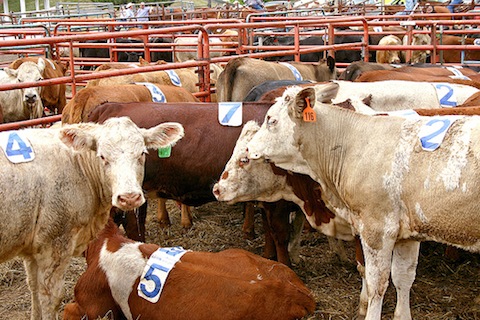
The world’s population hit seven billion at the end of last year, an increase of one billion in a mere 12 years. As the population continues to grow, food security will remain one of the most pressing problems of the 21st century. Malthusians might have a point in being concerned: The challenge of feeding seven billion-plus people is likely to become more difficult as environmental degradation and desertification carry on – and competition for crops increases. Food prices have soared in the last five years and increasing demand for alternative fuels further aggravates the situation. Food production has so far kept pace with population growth however, though the total area of land given to arable use has remained almost constant for decades. How long this can continue is not certain.
An important part of the human diet are livestock products, which account for 13% of the calories consumed worldwide and for 20% in developed countries. Meat production increased by 23.6% in the last decade, mainly driven by growing demand in China and Brazil, two countries which account for more than three-quarters of the yearly growth in meat output. In 1961, China’s per capita meat consumption was 3.8 kg; by 2002 it had increased to 52.4 kg. To meet this growing demand for animal products, factory farms and intensive farming methods are necessary. Besides the ethical concerns raised by these farming methods, such practices also cause a number of environmental and social problems.
